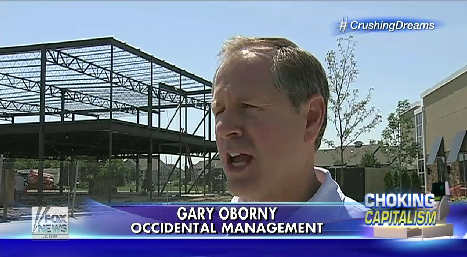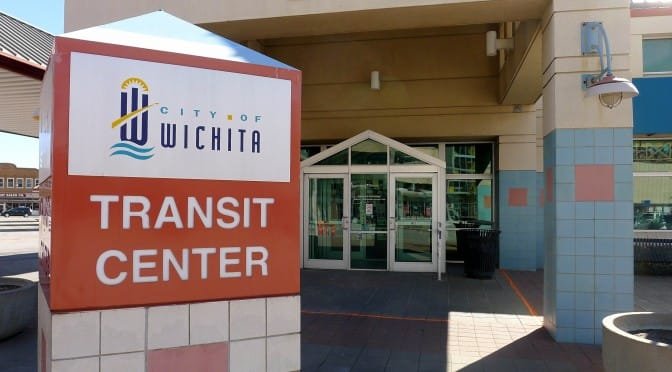A bill to raise the minimum wage in Kansas will harm the most vulnerable workers, and make it more difficult for low-skill workers to get started in the labor market.
Legislation introduced by Representative Jim Ward of Wichita would raise the minimum wage in Kansas by one dollar per hour each year until it reaches $10.25 per hour in 2018. The bill is HB 2012, captioned “enacting the Kansas working families pay raise act.”
The caption of the bill, referencing “working families,” hints at the problem, as seen by progressives. The minimum wage does not generate enough income to raise a family. While the bill calls for raising the minimum wage, it makes no reference of whether workers are raising a family, or working part-time for pin money while in high school.
But aside from that, there is the important question to consider: Will raising the minimum wage help or harm low-wage earners? And are the policy goals — taken in their entirety — of the groups pressing for a higher minimum wage in the best interest of workers? The answer to these questions is that higher minimum wages harm low-wage workers and low-skilled people who would like to work.
The great appeal of a higher minimum wage mandated by an act of the legislature is that it seems like a wonderfully magical way to increase the wellbeing of low-wage workers. Those who were earning less than the new lawful wage and who keep their jobs after the increase are happy. They are grateful to the lawmakers, labor leaders, newspaper editorialists, and others who pleaded for the higher minimum wage. News stories will report their good fortune.
That’s the visible effect of raising the minimum wage. But to understand the entire issue, we must look for the unseen effects.
The not-so-visible effect of the higher wage law is that demand for labor will be reduced. Those workers whose productivity, as measured by the give and take of supply and demand, lies below the new lawful wage rate are in danger of losing their jobs. The minimum wage law says if you hire someone you must pay them a certain amount. The law can’t compel you to hire someone, nor can it compel employers to keep workers on the payroll.
The difficulty is that people with lose their jobs in dribs and drabs. A few workers here; a few there. They may not know who is to blame. Newspaper and television reporters will not seek these people, as they are largely invisible, especially so in the case of the people who are not hired because of the higher wage law.
In the real world, business owners have many things they can do when labor becomes more expensive. Some things employers do to compensate for higher labor costs include these:
- Reduce non-wage benefits such as health insurance.
- Eliminate overtime hours that many employees rely on.
- Substitute machines for labor. We might see more self-service checkout lanes at supermarkets, more automated ordering systems at fast food restaurants, and more use of automated telephone response systems, for example.
- Use illegal labor. Examples include paying employees under the table, or requiring work off-the-clock.
- Some employers may be more willing to bear the risks of using undocumented workers who can’t complain that they aren’t being paid the minimum wage.
- Some employers may decide that the risks and hassles of being in business aren’t worth it anymore, and will close shop. Others simply can’t afford the higher wages and close. The Wall Street Journal reported on a nonprofit restaurant that couldn’t survive under Michigan’s higher minimum wage, reporting “These unintended consequences of a minimum wage hike aren’t unique to small towns in south-central Michigan. Tragically, they repeat themselves in locales small and large each time legislators heed the populist call to ‘raise the wage.’”
If we are truly concerned about the plight of low-wage workers we can face some harsh realities and deal with them openly. The simple fact is that some people are not able to produce output that our economy values very much. They are not very productive. Passing a law that requires employers to pay them more doesn’t change the fact that their productivity is low. But there are ways to increase productivity.
One way to increase workers’ productivity is through education. Unfortunately, there is ample evidence that our public education system is failing badly.
Capital — another way to increase wages — may be a dirty word to some. But as the economist Walter E. Williams says, ask yourself this question: who earns the higher wage: a man digging a ditch with a shovel, or a man digging a ditch using a power backhoe? The difference between the two is that the man with the backhoe is more productive. That productivity is provided by capital — the savings that someone accumulated (instead of spending on immediate consumption or taxes) and invested in a piece of equipment that increased the output of workers and our economy.
Education and capital accumulation are the two best ways to increase the productivity and the wages of workers. Ironically, the people who are most vocal about raising wages through legislative fiat are also usually opposed to meaningful education reform and school choice, insisting on more resources being poured into the present system. They also usually support higher taxes on both individuals and business, which makes it harder to accumulate capital. These organizations should examine the effects of the policies they promote, as they are not in alignment with their stated goals.
If it were possible to increase the prosperity of everyone by simply passing a law, we should do it. But that’s not the way the world works regarding minimum wage laws.
Who is harmed?
Walter Williams explains who is most harmed by minimum wage laws, and also the politics:
How about the politics of the minimum wage? In the political arena, one dumps on people who can’t dump back on him. Minimum wages have their greatest unemployment impact on the least skilled worker. After all, who’s going to pay a worker an hourly wage of $10 if that worker is so unfortunate as to have skills that enable him to produce only $5 worth of value per hour? Who are these workers? For the most part, they are low-skilled teens or young adults, most of whom are poorly educated blacks and Latinos. The unemployment statistics in our urban areas confirm this prediction, with teen unemployment rates as high as 50 percent.
The politics of the minimum wage are simple. No congressman or president owes his office to the poorly educated black and Latino youth vote. Moreover, the victims of the minimum wage do not know why they suffer high unemployment, and neither do most of their “benefactors.” Minimum wage beneficiaries are highly organized, and they do have the necessary political clout to get Congress to price their low-skilled competition out of the market so they can demand higher wages. (Politics and Minimum Wage)
The role of labor unions
Labor unions favor higher minimum wages laws. Why? Here’s what one union said in making its argument: “However, not only is $9/hour a step in the right direction, it is also good for union members, who stand to seek even greater wage increases in their contracts, if they make more than the current minimum wage of $7.25.” ( United Food and Commercial Workers International Union (UFCW).)
For more on this, see Why Unions Want a Higher Minimum Wage: Labor contracts are often tied to the law — and it reduces the competition for lower-paying jobs.
Minimum wage as competitive weapon
We also need to examine the motivations of business firms that support a higher minimum wage. Sometimes they see a way gain a competitive advantage.
In 2005 Walmart came out in favor of raising the national minimum wage. Providing an example of how regulation is pitched as needed for the common good, Walmart’s CEO said that he was concerned for the plight of working families, and that he thought the current minimum wage of $5.15 per hour was too low. (“Working families.” That’s in the caption of the proposed Kansas law. It’s no coincidence.) If Walmart — a company progressives love to hate as much as any other — can be in favor of increased regulation of the workplace, can regulation be a good thing? Had Walmart discovered the joys of big government?
The answer is yes. Walmart discovered a way of using government regulation as a competitive weapon. This is often the motivation for business support of regulation. In the case of Walmart, it was already paying its employees well over the current minimum wage. At the time, some sources thought that the minimum wage could be raised as much as 50 percent and not cause Walmart any additional cost — its employees already made that much.
But its competitors didn’t pay wages that high. If the minimum wage rose very much, these competitors to Walmart would be forced to increase their wages. Their costs would rise. Their ability to compete with Walmart would be harmed.
In short, Walmart supported government regulation in the form of a higher minimum wage as a way to impose higher costs on its competitors. It found a way to compete outside the marketplace. And it did it while appearing noble.



 First, Charter Ordinance No. 144, which the council may override, says that the property being used for the apartments “shall be hereafter restricted to and maintained as open space, committed to use for the purpose of public recreation and enjoyment.” Now that the council has turned over the property for private use, we may want to ask: Is this good public policy? The council will have to explicitly decide this issue. When the city conveyed the property without dealing with this ordinance, the issue was not discussed.
First, Charter Ordinance No. 144, which the council may override, says that the property being used for the apartments “shall be hereafter restricted to and maintained as open space, committed to use for the purpose of public recreation and enjoyment.” Now that the council has turned over the property for private use, we may want to ask: Is this good public policy? The council will have to explicitly decide this issue. When the city conveyed the property without dealing with this ordinance, the issue was not discussed.






